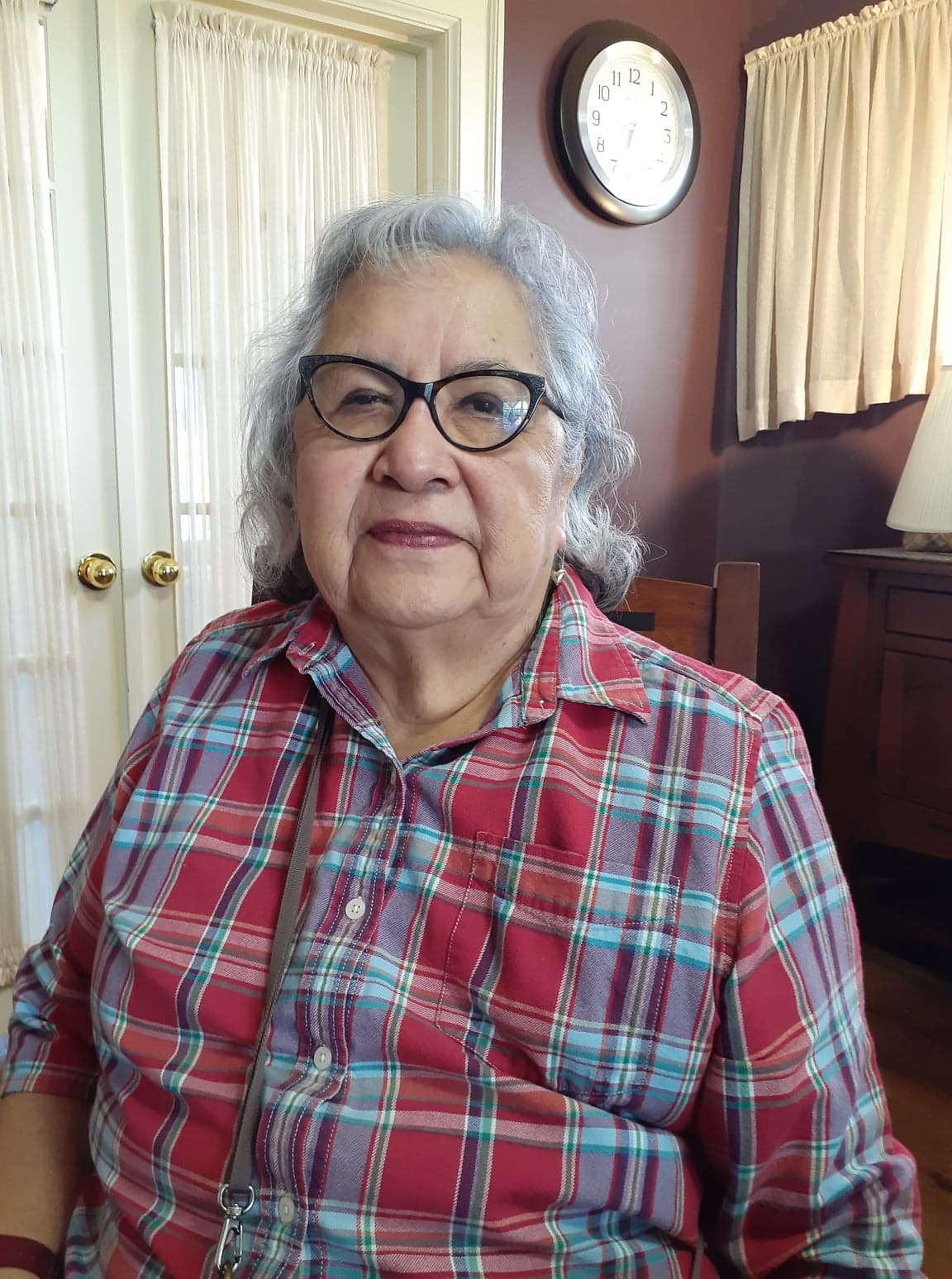Eileen Black- She Never Quit Drinking in Her Life
And so there was door leading to the outside, oh, and so there’s a main door. There’s a main door and all of the kids were chased outside at recess in the middle of winter, we have to go outside. And that time they issued those leather boots and brown stockings and we used to wear skirts. That’s what we used to wear, and they weren’t even warm, the jackets we wore. I don’t even remember what kind of jacket we used to wear, all I remember was the intense cold going into that, that playground. Ya [expression] we were so cold, shivering. We cant even talk because we were shivering so bad. We would hurry to open the door and ah ‘cause they would lock the door. We couldn’t even go back in because they locked the door.
And the older ones, all I remember was my older sister Kaamihtaki and I don’t know if Pakitsuaki was part of that… but I remember Veronica, Amatsikamoosaki. I remember her and they were, I can picture them, standing around in a circle around, those big girls, they were surrounding around the younger girls. They were trying to keep us warm.
You know, I used to think I wonder if Matsikamoosaki… sometimes I don’t remember a lot, but every once in awhile, I think of it and think of asking even Rachel, “do you still remember residential school?” But even my sisters… but this is their story. They would talk about what they went through in residential school and how they treated badly. I used to think I was treated bad, but listening to them they were treated way worse by the supervisors, by the workers here and of course the students. They were treated bad. I despise that priest Mr. Cole, I hope none of his pictures are in this building Mr. Cole, because my sister, she has passed away, he sexually abused my sister, that Mr. Cole. And now I understand how, how… why she was the way she was. Why she never quit drinking in her life but she also never dealt with this like I did.
So, the stories that are going to be coming out is what’s going to also help our people to heal themselves and not to feel ashamed. I know some are ashamed cause that is what happened to me… because of what I experienced, what I experienced in residential school, and you hate it and feel ashamed. You don’t want to talk about because of that shame but now we have to put away that shame and I am finding out that when you talk openly about it, people are listening, and they don’t judge you for it but they believe what was happening. So I know my sisters and its too bad they have passed away and they probably would have had a lot of stories to say. So, I’m glad I’m contributing to whatever I can.
– Isitsimani, Eileen Black
Notes:
Oral interview with Eileen Black. Conducted, translated, and transcribed by Angeline Ayoungman. Old Sun Community College, June 29, 2022.

